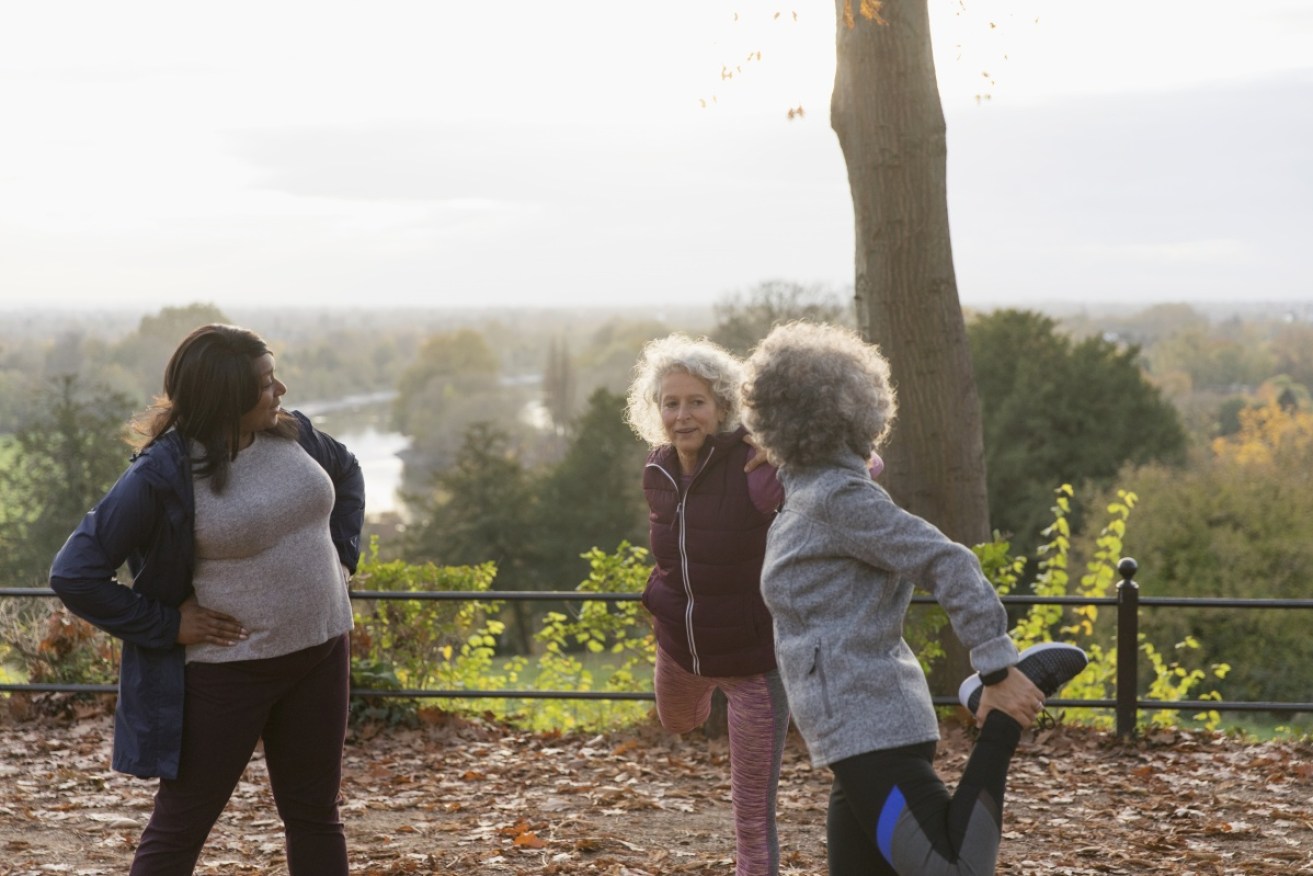Poor fitness linked to weaker brain fibre, higher dementia risk

A study has linked a lack of fitness with dementia risk. Photo: Getty
Just in case you needed yet another incentive to get off the couch, the evidence linking exercise with dementia risk continues to mount.
A study reported in the Journal of Alzheimer’s Disease has found that fitter subjects had healthier white matter in their brains, which correlated with better thinking skills.
White matter is made up of bundles of nerve fibres that act like information highways, allowing parts of the brain to “talk” to each other.
The research team took 81 people – 26 with normal brain function and 55 with mild cognitive impairment – and measured fitness using a formula called maximal oxygen uptake. White matter was tested with brain imaging. Tests were also done for memory and cognitive function.
They found that people with higher maximal oxygen uptake had better white matter integrity and cognitive function.
Dr Shantel Duffy, a postdoctoral fellow specialising in dementia research at the University of Sydney, said the finding added to the growing body of evidence confirming the relationship between exercise and brain health.
The exact reason for the relationship is not yet fully understood. However, Dr Duffy said there seems to be a connection between exercise and sleep.
“Exercise is a really potent way of improving our sleep,” she said.
“We know how important sleep is for clearing out toxins and waste … produced during the day from energy production in the brain.”

Expert tip: Make sure it’s an exercise you enjoy. Photo: Getty
Exercise is also proven to be beneficial for people who already have dementia.
“There’s a lot of work now that’s showing that exercise interventions have a positive outcome for people who are living with dementia, and sometimes it’s not necessarily cognitive,” Dr Duffy said.
Benefits include improved mood, better thinking skills and mental processing speed.
Associate Professor Michael Woodward, the chief medical adviser for Dementia Australia, said exercise might also reduce inflammation, release antioxidants and improve blood flow to the brain.
He recommends individuals get active for at least half an hour on most days.
And it’s best to choose exercise that is interesting and practical, rather than taking on too much. Or, as Professor Woodward put it: “Something that you’re going to do for a few days and then say, ‘bugger this, I’ve had enough’.”
Dr Duffy agreed, adding that you don’t need to become a gym junkie – research has shown that even one 20-minute session a week had a positive benefit for people living with dementia. She said the most important message was just to do something.
To reap real brain benefits, however, aim to increase your heart rate with each activity.
The experts agree that a combination of aerobic and resistance training is the most beneficial.
Dr Duffy said resistance-based exercises and weight training are for every age group.
“Our bodies actually respond better as we get older because we’ve got more [room for] improvement,” she said.
But while exercise is great, it is not a panacea for brain health.
“I see exercise, diet and sleep as a trifecta of physical and mental health,” Dr Duffy said.
“If you’ve got all of those three factors in check – you’re eating well, sleeping well and exercising regularly – then it really sets our brains up for the best possible longevity and good health.”








